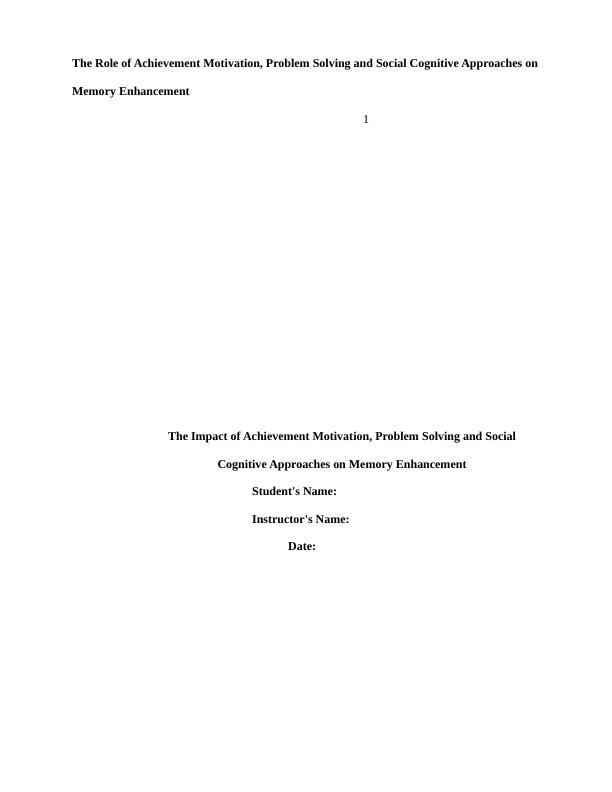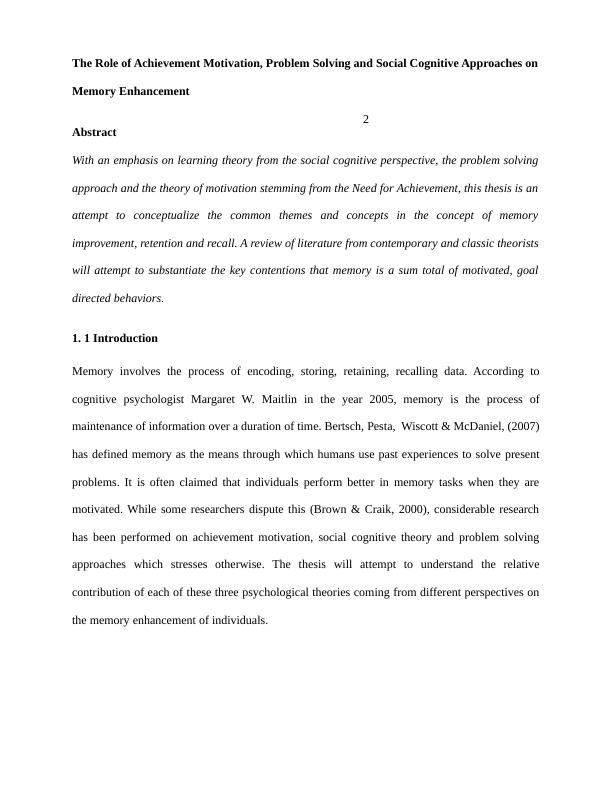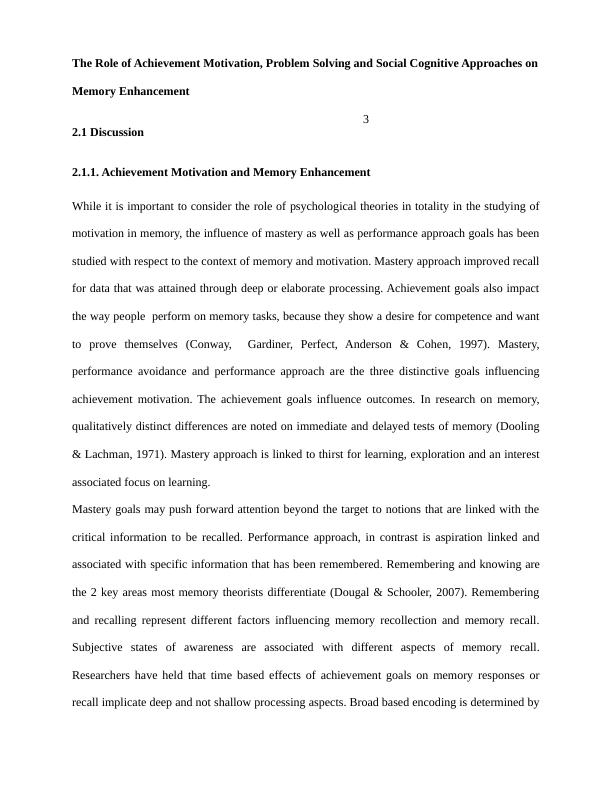Ask a question from expert
Learning Theory: Social Cognitive Perspective
10 Pages2442 Words133 Views
Added on 2019-12-28
Learning Theory: Social Cognitive Perspective
Added on 2019-12-28
BookmarkShareRelated Documents
End of preview
Want to access all the pages? Upload your documents or become a member.
Research Methods and Design in Psychology
|19
|3190
|14
Dissertation ACKNOWLEDGEMENT For the Conduct of My Master's Thesis
|58
|17820
|445
Cognitive Approaches to Learning and Cognitive Load Theory
|6
|940
|25
Psychology Assignment Solution (Doc)
|11
|2860
|288
Self-motivation in Higher Education
|11
|3362
|697
Impact of Anxiety on EFL Learners' Speaking Proficiency
|11
|2441
|251


